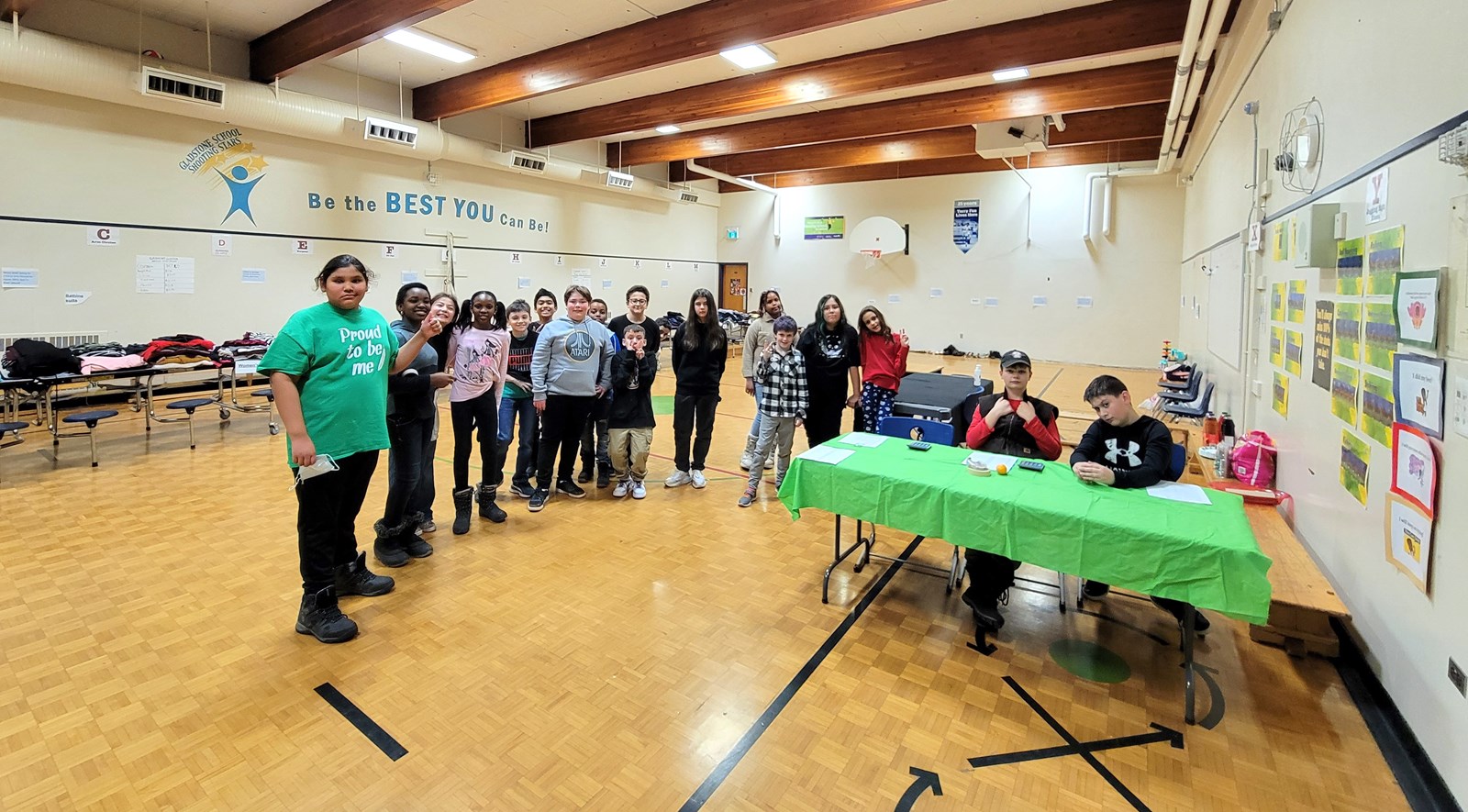Gladstone School students study environmental impacts of fast fashion & host sustainable clothing sale
December 19, 2023
Gladstone School students recently learned about the life cycle of a t-shirt and how fast fashion can impact our environment. This led to conversations about sustainability and where most clothing is made, how much pollution and water waste it creates through the process, and the conditions and wages of garment workers.
“We brainstormed ways to help reduce the environmental impacts of clothing. The students talked about donating clothing to local donation centers, giving it to friends or family, even making something new, such as a washcloth, to reduce waste," said Gladstone teacher Aleisha Dyer.
Through discussion, the students decided to put on a clothing sale at the school for families. The staff came together to help collect items for the sale, that included over 500 pieces of men, women, and children's clothing, outerwear and shoes.
"Our teacher Ms. Dyer was teaching us about sustainability, environmental impacts and solutions and we discussed that clothes can be reused easily instead of being thrown away, and they end up in landfills," said Amelie Hartle-Mehari, a Grade 6 student, at Gladstone School. "During the sale of clothes, I explained to the parents that in making a shirt, 2700 litres of water, pesticides and carcinogenic chemicals are used in growing cotton, then when the cotton grows, it is processed in machines to create strings and grey fabric. The fabric is then dyed with harmful chemicals before sewing it to make a shirt. So, we should not buy many shirts if we do not need them and reuse them instead of throwing them away in the garbage."

The clothing sale was held during student-led conferences and was a huge success with over 85% of all items sold. Not only did most of the items sell, the students were excited to talk to families about why they were having the sale and educate them on how to reduce their own carbon footprint through buying second-hand.
"We sold around 500 shirts and lightly used clothes for 5 cents and we raised money for Make-A-Wish foundation. We also educated parents about the environmental impacts and how much everyone is paid to make the shirts, China pays the lowest to their labourers, they get only ten cents per hour and work for twelve hours in a cramped space," said Joe Hetzel, a Grade 5 student, Gladstone School. "My message to everyone is to buy clothes locally where fair wages are paid to the workers and reuse them as much as you can."
